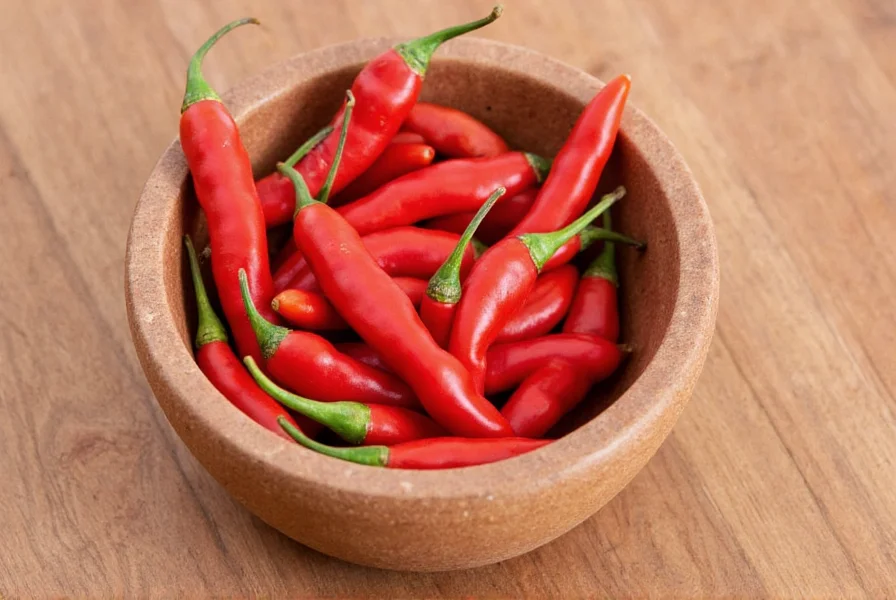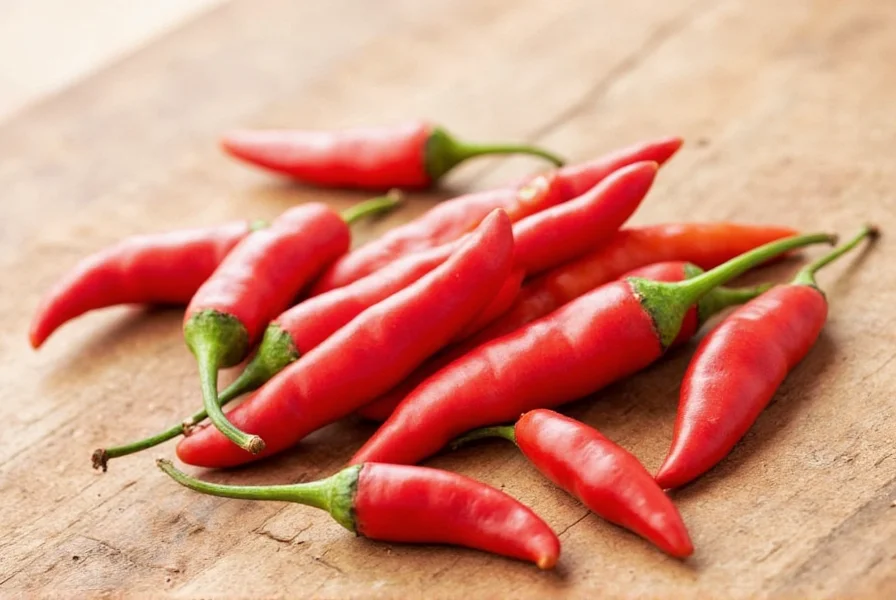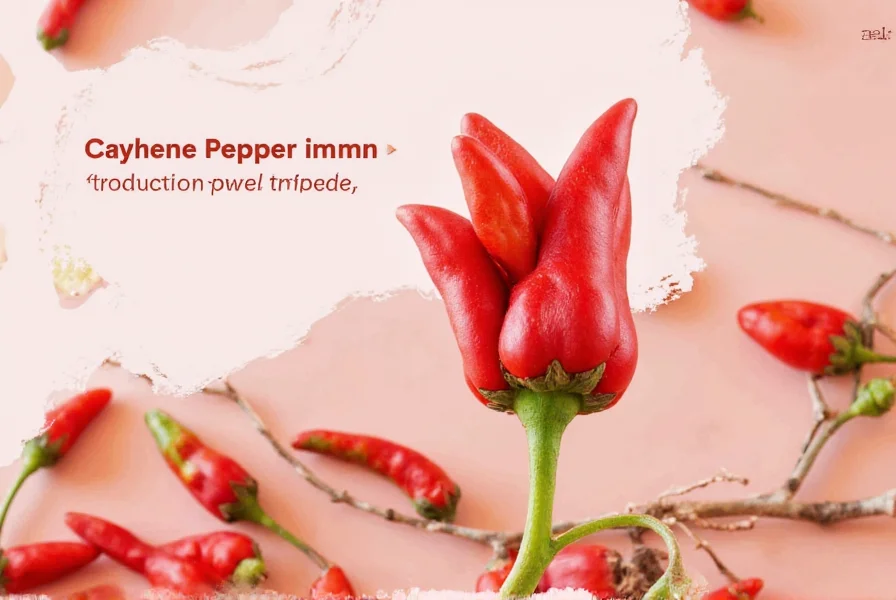Current scientific evidence suggests that cayenne pepper, primarily through its active compound capsaicin, may have modest blood pressure-lowering effects due to its ability to promote blood vessel dilation and improve circulation. However, these effects are generally temporary and should not replace prescribed hypertension medications. More high-quality human studies are needed to determine long-term efficacy and appropriate dosing.
Many people exploring natural approaches to cardiovascular health wonder about the relationship between cayenne pepper and blood pressure management. This common kitchen spice has gained attention in wellness circles for its potential heart health benefits, but what does the actual science say? Let's examine the evidence behind cayenne pepper's effects on blood pressure with a balanced, evidence-based perspective.
The Science Behind Cayenne Pepper's Cardiovascular Effects
Cayenne pepper contains capsaicin, the compound responsible for its heat, which interacts with transient receptor potential vanilloid 1 (TRPV1) channels in the body. When consumed, capsaicin triggers a cascade of physiological responses that may influence cardiovascular function.
Research indicates that capsaicin stimulates the release of nitric oxide, a molecule that helps blood vessels relax and dilate. This vasodilation effect can lead to temporary reductions in blood pressure. A 2016 study published in Cell Metabolism found that regular capsaicin consumption was associated with lower blood pressure in animal models, with effects lasting beyond the immediate consumption period.
| Study Type | Key Findings on Cayenne Pepper Blood Pressure Effects | Limitations |
|---|---|---|
| Animal Research (2016) | Regular capsaicin consumption associated with 15-20 mmHg systolic reduction | Not directly translatable to humans |
| Human Clinical Trial (2010) | Acute capsaicin intake showed temporary vasodilation effects | Small sample size (n=21), short duration |
| Population Study (2019) | Regular spicy food consumers had 14% lower hypertension risk | Correlation doesn't prove causation |
How Cayenne Pepper Might Affect Blood Pressure
The potential blood pressure benefits of cayenne pepper appear to work through several mechanisms:
- Vasodilation: Capsaicin promotes nitric oxide production, helping blood vessels relax and improving blood flow
- Anti-inflammatory effects: Chronic inflammation contributes to hypertension, and capsaicin has demonstrated anti-inflammatory properties
- Improved circulation: The temporary "warming" sensation may enhance peripheral blood flow
- Potential metabolic benefits: Some research suggests capsaicin may support healthy metabolism, indirectly benefiting cardiovascular health
It's important to note that most observed blood pressure effects from cayenne pepper are relatively modest and temporary. The immediate "heat" response might actually cause a brief, slight increase in blood pressure before the vasodilatory effects take over.

Important Safety Considerations
While cayenne pepper is generally safe as a food ingredient, those considering it specifically for blood pressure management should be aware of several important considerations:
- Medication interactions: Cayenne pepper may enhance the effects of blood pressure medications, potentially causing readings to drop too low
- Digestive sensitivity: High doses can cause stomach irritation, especially in those with gastrointestinal conditions
- Acute effects: The initial spicy sensation can temporarily increase heart rate and blood pressure before vasodilation occurs
- Supplement quality: Cayenne supplements vary widely in capsaicin content and may contain additional ingredients
Individuals with existing cardiovascular conditions, those taking blood pressure medications, or people scheduled for surgery should consult their healthcare provider before significantly increasing cayenne pepper intake for blood pressure purposes.
Practical Usage Guidelines
If you're interested in exploring cayenne pepper as part of a heart-healthy lifestyle, consider these evidence-based recommendations:
- Start with small culinary amounts (1/8 to 1/4 teaspoon) added to foods rather than supplements
- Monitor your blood pressure regularly if using cayenne pepper specifically for this purpose
- Combine with other evidence-based approaches like the DASH diet, regular exercise, and stress management
- Avoid extremely high doses that could cause adverse effects
- Be patient—any potential benefits would likely develop gradually with consistent, moderate use
Remember that cayenne pepper should complement, not replace, conventional blood pressure management strategies. The American Heart Association emphasizes that lifestyle modifications and prescribed medications remain the cornerstone of effective hypertension treatment.

Current Research Limitations
While preliminary research on cayenne pepper and blood pressure is promising, significant limitations exist in our current understanding:
- Most human studies have been small-scale with limited duration
- Research often uses purified capsaicin rather than whole cayenne pepper
- Long-term effects of regular cayenne consumption on blood pressure remain unclear
- Optimal dosing for cardiovascular benefits hasn't been established
- Individual responses may vary significantly based on genetics and health status
More rigorous, large-scale human trials are needed before definitive recommendations about cayenne pepper for blood pressure management can be made. Until then, it's best viewed as a potential complementary approach rather than a primary treatment.
Conclusion
Cayenne pepper shows interesting potential for supporting cardiovascular health through its capsaicin content, with some evidence suggesting modest, temporary blood pressure-lowering effects. However, current research doesn't support using it as a replacement for proven hypertension treatments. When incorporated as part of a balanced, heart-healthy diet in culinary amounts, cayenne pepper may offer additional benefits alongside conventional approaches to blood pressure management. Always consult with your healthcare provider before making significant changes to your approach for managing blood pressure, especially if you're already taking medication.
Can cayenne pepper lower blood pressure immediately?
Cayenne pepper may cause temporary vasodilation that could lead to a modest, short-term reduction in blood pressure, but this effect is not immediate or dramatic. The initial spicy sensation might actually cause a brief increase in heart rate and blood pressure before any potential vasodilatory effects occur. Any blood pressure changes from cayenne pepper consumption are typically modest and temporary, not suitable as an immediate solution for hypertension.
How much cayenne pepper should I take for high blood pressure?
There is no established therapeutic dose of cayenne pepper specifically for blood pressure management. Research studies have used varying amounts, but most evidence comes from culinary use rather than supplementation. If incorporating cayenne into your diet, start with small amounts (1/8 to 1/4 teaspoon daily) in food. Never use cayenne pepper as a replacement for prescribed blood pressure medication without consulting your healthcare provider.
Can cayenne pepper interact with blood pressure medications?
Yes, cayenne pepper may potentially enhance the effects of blood pressure medications, which could cause your blood pressure to drop too low. This is particularly important for those taking calcium channel blockers or other medications that already lower blood pressure. Always consult your healthcare provider before significantly increasing cayenne pepper consumption if you're taking blood pressure medication.
Is cayenne pepper safe for people with heart conditions?
Cayenne pepper is generally safe as a food ingredient for most people with heart conditions, but those with specific cardiovascular issues should exercise caution. The temporary increase in heart rate that can occur with spicy foods might be problematic for some individuals. If you have a heart condition and are considering using cayenne pepper specifically for blood pressure management, consult your cardiologist first to ensure it's appropriate for your specific health situation.
What's the difference between cayenne pepper supplements and culinary use for blood pressure?
Culinary use of cayenne pepper typically involves smaller, more moderate amounts incorporated into food, which is generally considered safe. Supplements often contain concentrated capsaicin extracts with much higher potency, and their effects on blood pressure may be more pronounced but also carry greater risk of side effects or interactions. Most research on cardiovascular benefits has focused on capsaicin rather than whole cayenne supplements, and the long-term safety of high-dose supplements for blood pressure management hasn't been established.











 浙公网安备
33010002000092号
浙公网安备
33010002000092号 浙B2-20120091-4
浙B2-20120091-4